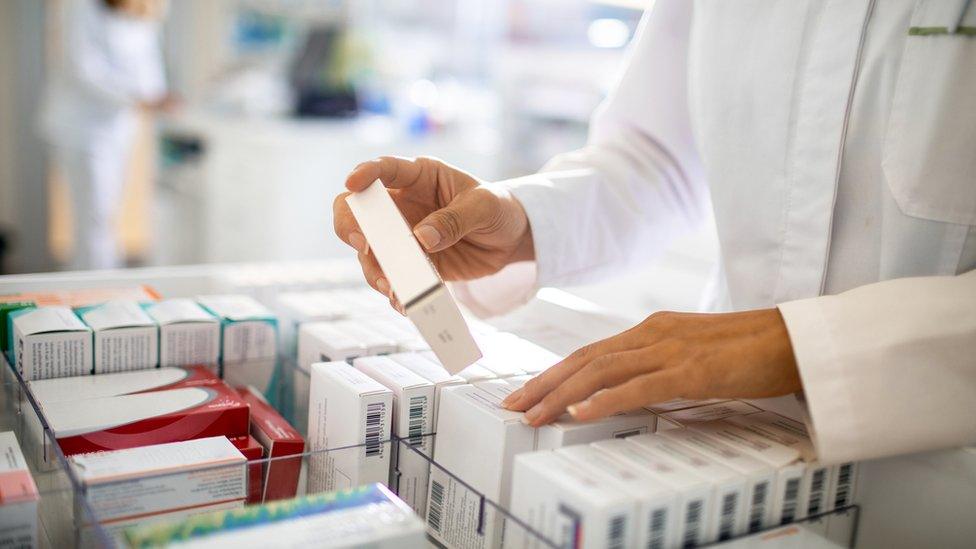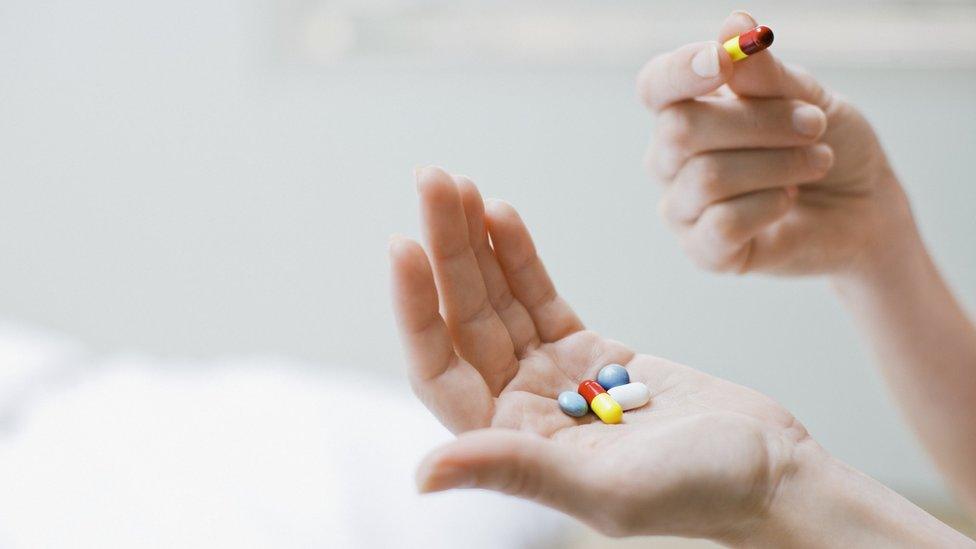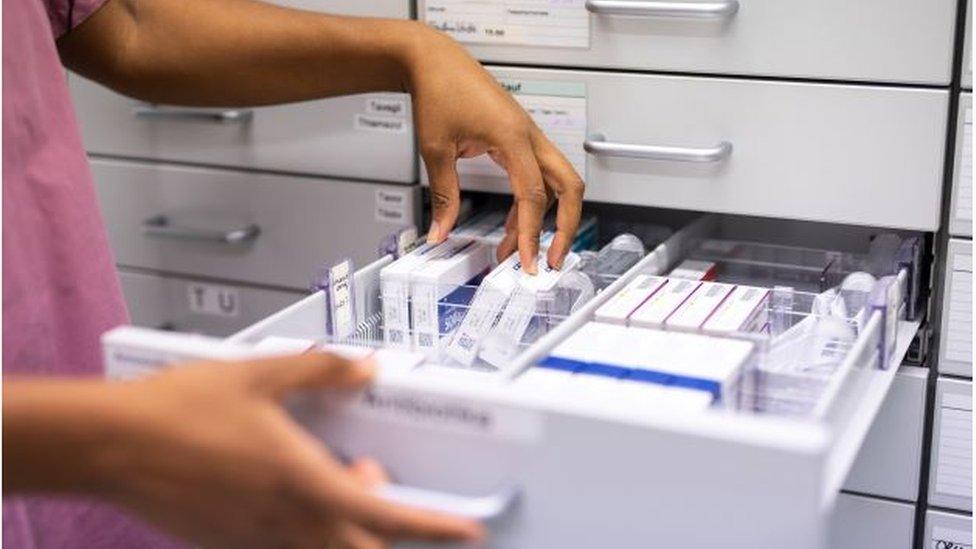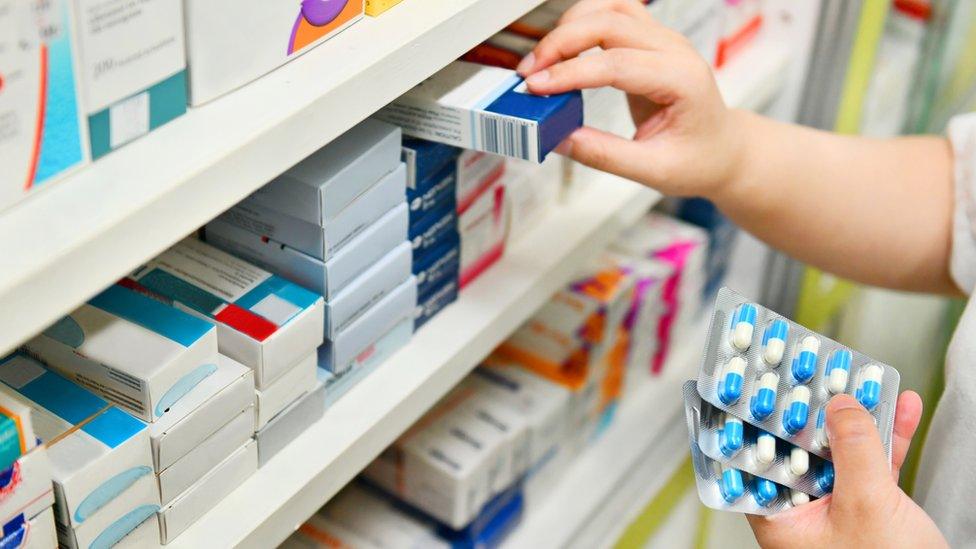NI Protocol: Medicine supply still 'problematic and inefficient'
- Published

Martin Sawer, of the Healthcare Distribution Association, was speaking to a House of Lords Committee examining the impact of the NI Protocol
An organisation which represents medicines wholesalers says supplying Northern Ireland remains "challenging, problematic and inefficient".
Martin Sawer, of the Healthcare Distribution Association, gave evidence to a House of Lords Committee examining the impact of the NI Protocol.
Mr Sawer said problems remain despite the EU changing its laws to ease the flow of medicines from GB to NI.
He added that supplies remain "OK" but he has major concerns about the future.
'Sticking plasters'
Mr Sawer said the regulatory "tectonic plates" of NI and GB are moving apart and measures to keep them together are "sticking plasters."
He was echoed by Paul Williams from pharmaceutical manufacturer, Teva UK.
Mr Williams said there were still six outstanding issues to be addressed including requirements around the licensing and packaging of medicines.
Meanwhile, Michelle Riddalls from the Proprietary Association of Great Britain (PAGB), which represents manufactures of over-the-counter, non-prescription medicines, said most of the issues for her sector had been addressed.
However, she also raised an issue around the licensing of medicines.
What is the problematic issue?
The post-Brexit deal known as the Northern Ireland Protocol means NI is still inside the EU's pharmaceutical regulatory system.
It gets most of its medicines from Great Britain, which is not.
This emerged as one of the protocol's major difficulties, with pharmaceutical firms warning it would lead to withdrawal of products.
The EU accepted it was a problem and in April 2022 changed its laws so that medicines entering Northern Ireland from Great Britain will not need additional labelling or testing, things which would have been required by the protocol in its original form.
However, some drugs companies say the licensing procedure for medicines in Northern Ireland still has problems.
Licensing is a complex area. In the EU there is a role for the European Medicines Agency (EMA) and national regulators.
The protocol means the EMA's role is effectively to approve innovative drugs for use in Northern Ireland while the MHRA approves things like generic medicines.
Depending on how a drug was originally approved for use in the EU it may now need two licences to supply the whole of the UK, one covering GB and one covering NI, which adds additional cost and complexity.

Mr Williams says new "cliff edge" could yet see products being withdrawn from Northern Ireland
Mr Williams said there was anecdotal evidence of some manufacturers of deciding it was not worth their time to get an NI licence.
He said that a major looming problem was that some medicines which were licensed pre-Brexit on a whole UK basis were having to be moved to a GB-only licence while NI products would retain their original licence.
This process is supposed to be completed by the end of December. At that point the same pack could not be supplied to both GB and NI.
He said that having a separate pack for Northern Ireland was a fundamental problem as "there are simply not enough patients in Northern Ireland to make that worthwhile."
He added that meant a new "cliff edge" which could yet see products being withdrawn from NI.
Michelle Riddalls said that some manufacturers of over-the-counter medicines will produce joint packs for a small number of products.
However, that is a risk because it involves two regulators who could later diverge on what information the packs should contain.
The UK government has devised a system called NIMAR, external which means that prescription drugs which have only been approved in GB can still be used in NI on the basis of clinical need.
However, Mr Williams said that system is bureaucratic, contains grey areas and can only be a temporary fix.
The representatives also raised issues with how the EU's Falsified Medicines Directive applies in Northern Ireland and the regulatory procedures for medical devices.
Related topics
- Published16 November 2022

- Published12 April 2022

- Published18 September 2021
